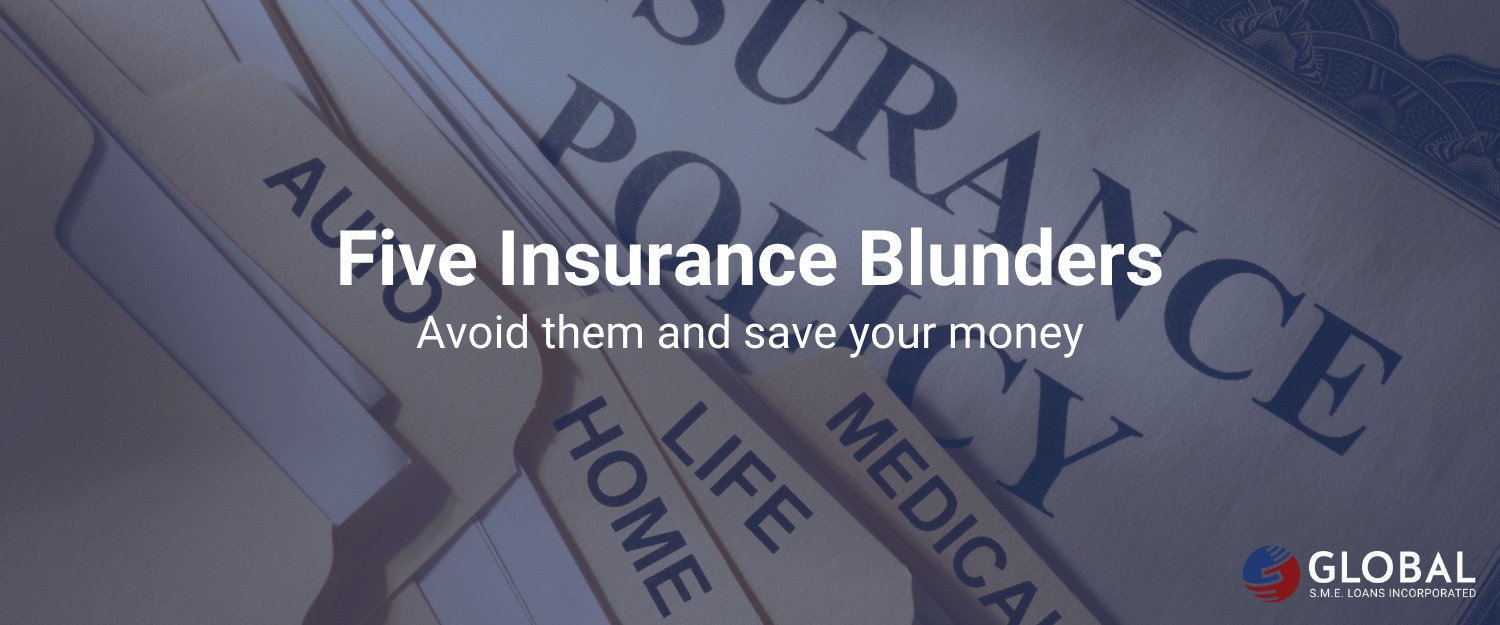Avoid These Five Insurance Blunders and Save Money

Just like all things in life, there’s always a combination of pros and cons that one must consider before making a decision. Most especially, when buying insurance, you don’t want to fall into mishaps that might endanger your future instead of securing it. So, if you can stay away from these typical blunders, you’ll be well on your way to finding the best insurance that meets your needs and fits your budget.
When purchasing auto, home, flood, or renters insurance; simply decreasing or eliminating critical coverage is just about the numbers but not the results. Therefore, you should not put yourself in danger of being underinsured and being responsible for substantially larger payments in the event of a calamity. To do this, make sure to pay attention to the following mistakes. We’ve also included ways on how you can save money by avoiding them.
1. Insuring a house for its market value rather than the expense of reconstruction.
Most insurance is usually designed to cover the expense of rebuilding a home, but not the purchase price. That’s why some homeowners may believe they may lower their home insurance premiums when real estate prices fall. Whatever the state of the real estate market, be sure you have enough insurance to completely repair your home and replace your belongings.
A surely more cost-effective way to save money is raising your deductible. For example, a 50% increase to your initial cost might save you up to 25% on your premium payments.
2. Choosing an insurance company solely on the basis of pricing.
Selecting a service with competitive pricing is crucial. Make sure, however, that the insurer you select is financially sound and provides outstanding customer service.
Aside from the obvious task of asking friends and family members about their insurance experiences of certain companies you’re interested in, the best way is to check a company’s financial health with independent rating organizations. Make sure to choose an insurance company that coincides with your demands and processes claims in a fair and timely manner.
3. Phasing out flood insurance.
Flood damage is not covered by most homeowner’s and renter’s insurance plans. You may not realize you’re at risk for flooding, but keep in mind that low-risk locations account for 25% of all flood losses. Annual weather cycles, such as tropical monsoons that sometimes exacerbate torrential rainstorms, can also create flooding.
Before buying a house, check whether your property if it’s in a flood zone; if it is, you might want to consider moving to a less risky region. Look into flood mitigation measures that might help minimize your risk of flooding and consider before buying flood insurance.
4. Only purchasing the minimum amount of liability coverage required by law for your vehicle.
The bare minimum that you can get away with under the law is exactly the bare minimum. As a result, getting the bare minimum of liability insurance will cost you more money in the long run. And if you’re sued, such costs can put your finances in jeopardy.
Consider removing collision and/or comprehensive coverage on older automobiles that are worth less as a better way to economize. A minimum in bodily injury protection per person and per accident is recommended by the insurance industry and consumer groups.
5. Failure in obtaining renters insurance.
If you have to move out due to an insured event, such as a fire or hurricane, renters insurance will cover your belongings and additional living expenses. It also protects you from responsibility in the event that someone gets wounded in your house and decides to sue you.
Looking into multi-policy discounts for a great way to save. Purchasing multiple policies with the same insurer, such as renters, auto, and life, will save you money.

